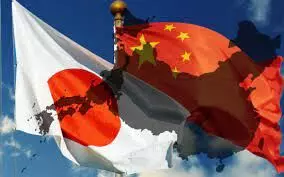China urges Japan to safely dispose of nuclear-contaminated water

A Chinese Foreign Ministry spokesperson on Wednesday urged Japan to respond to the legitimate concerns of all relevant parties and dispose of its nuclear-contaminated water in a scientific, open, transparent and safe manner.
According to media reports, the technical task force of the International Atomic Energy Agency (IAEA) visited Japan from Jan. 16 to Jan. 20 to review the country’s plan to pipe nuclear-contaminated water.
The report will be published within three months on the contaminated water from the Fukushima Daiichi nuclear power station into the Pacific Ocean.
However, the Japanese government unilaterally announced on Jan. 13 that it would discharge the nuclear-contaminated water into the ocean in the spring or summer this year.
In response to a related query, Foreign Ministry spokesperson Mao Ning told a daily news briefing that China is paying close attention to Japan’s disposal of the nuclear-contaminated water.
Mao said that China supported the IAEA and its technical task force in conducting the review and evaluation of this issue.
“We hope that the technical task force will uphold the principles of objectivity, fairness and science, implement the agency’s nuclear safety standards strictly, and ensure the absolute safety of the disposal of the nuclear-contaminated water.
“We look forward to the review report from the technical task force and will study it carefully,’’ she said.
There is no precedent for Japan’s discharge of nuclear-contaminated water into the ocean, and this discharge process will continue for as long as 30 years.
To date, the Japanese side has not provided sufficient scientific or factual basis for this, and has not resolved the international community’s concerns about the legitimacy of its nuclear-contaminated water discharge plan.
Mao said it had not provided enough information on the reliability of its data, the effectiveness of its purification devices, and the uncertainty of the potential environmental impact.
China had noted with concern that the Japanese side officially approved the plan to discharge the nuclear-contaminated water into the ocean last July, when the IAEA technical task force was still reviewing and evaluating it.
Mao said not long ago, on the eve of the IAEA’s visit to Japan, Japan unilaterally announced that it would discharge the nuclear-contaminated water into the ocean during the spring or summer this year.
Such reckless behaviour raises questions about whether Japan values the authority of the IAEA and its technical task force.
“Is Japan determined to proceed with its unilateral discharge plan regardless of the outcome of the assessment? It is necessary for Japan to give responsible answers to these questions,’’ she said.
China once again urged Japan to respond to the legitimate concerns of all relevant parties, dispose of the nuclear-contaminated water in a scientific, open, transparent and safe manner, consent to strict supervision, and earnestly protect the marine environment, health rights and interests of people of all countries, Mao said.
“Without full consultation with neighbouring countries and other stakeholders, as well as with relevant international institutions, Japan should not start the discharge process arbitrarily,” she added.



